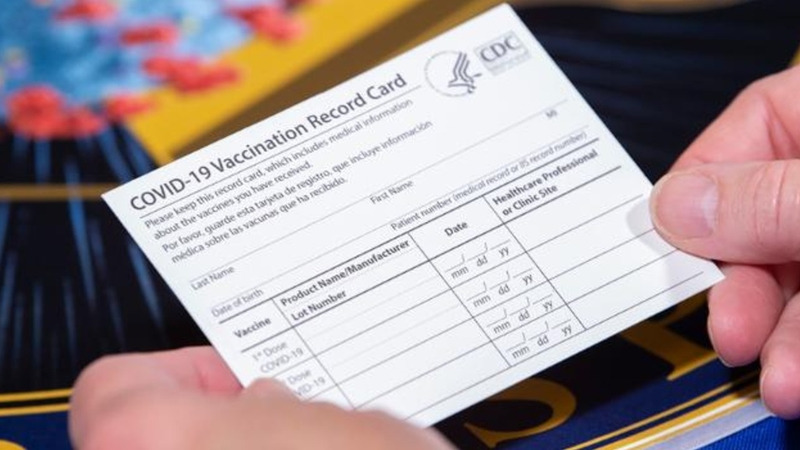Cybersecurity experts are urging those who receive the COVID-19 vaccine to not post selfie photos that include their vaccination card information on the web.
Information found on the vaccination card—birth date, medical record number, date of vaccination, location of vaccine center—is all some scammers need to sell fake versions of vaccination cards and steal identities.
Companies also are can use the information. Even seemingly harmless details such as which vaccine you received can have potentially serious ramifications for health insurance or employment, HU Cybersecurity Professor Ron Jones told FOX43 news in a recent interview.
“If you took one of the vaccines that has a side effect and maybe you’re going to have the potential high probability of high blood clots, so I may want to raise your health insurance rates or I may want to deny you a job because you’re a risk to the company because of the high cost of healthcare,” Jones said.
Certain posting instances also could be unlawful, he added. If vaccines get approved for children under 13, a vaccination card posted on social media could violate the Children’s Online Privacy Protection Act, he said.
“[The social media companies] would have to take that down because that would be children’s health information,” Jones said.
To view the story, click here.
ABOUT HARRISBURG UNIVERSITY
Accredited by the Middle States Commission on Higher Education, Harrisburg University is a private nonprofit university offering bachelor and graduate degree programs in science, technology, and math fields. For more information on the University’s affordable demand-driven undergraduate and graduate programs, call 717-901-5146 or email, Connect@HarrisburgU.edu. Follow on Twitter (@HarrisburgU) and Facebook (Facebook.com/HarrisburgU).
